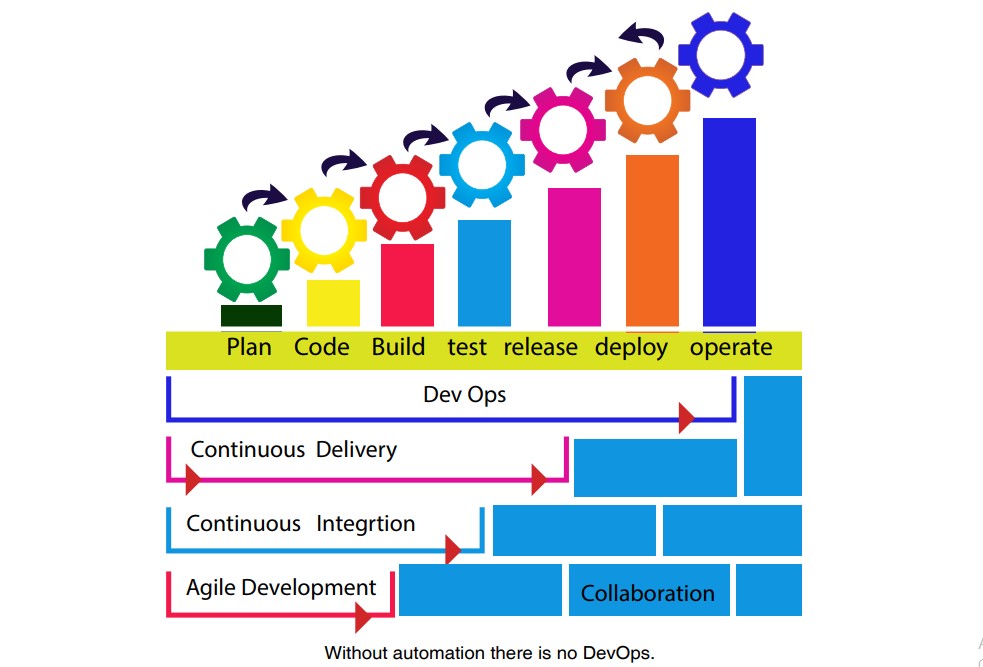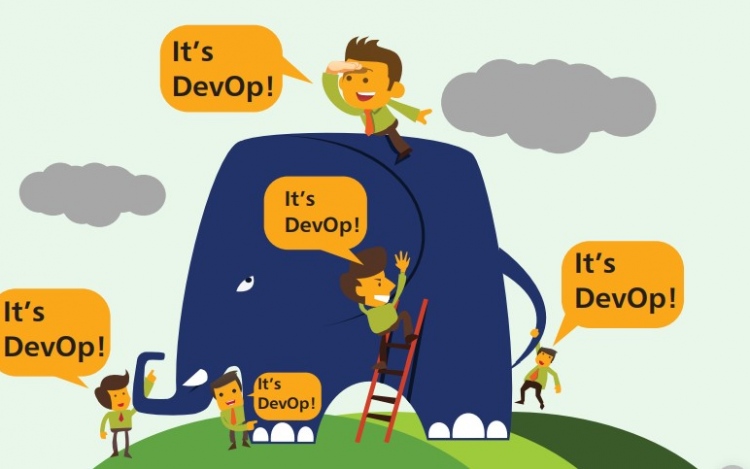Adopting DevOps is almost a no-brainer and any progressive organization would vouch for that. What is equally important is to understand the journey of DevOps adoption.
It today’s fast paced world, enterprises that offer a continuous accelerated delivery model hold a definite advantage over those working in a traditional environment. DevOps has been one of the pioneering success stories in recent times helping enterprises attain an agile approach.
For an enterprise to ensure a successful DevOps journey, DevOps tools need to be implemented virtually in all areas of business functionality. Considering DevOps as a mere communion of development and operations team alone cannot lead to a successful DevOps implementation.
Here is a five point DevOps tools checklist, which can act as facilitators to ensure a successful DevOps journey for an enterprise.

1: Adopting DevOps is a work culture transformation
It is a work culture change, which must come across the board and should not just be limited to certain departments of an organization.
Implementing DevOps is high on the wish list of a vast majority of CIOs as customers demand faster solutions and services. However, not all enterprises are able to attain the maximum benefit of DevOps functionality as they remain confined in traditional work practices. Following old protocols in a DevOps environment is a big challenge faced by many enterprises. To ensure your enterprise does not suffer from any such reduced functionality, having clarity on DevOps is the key.
Before implementing any DevOps tools or DevOps transformation, know that adopting DevOps is a cultural change rather than a technical change. Overall DevOps principles must be embedded in the enterprise work ethics for a successful DevOps transformation. The use of DevOps implementation service providers who help traditional businesses adopt the agile DevOps approach can be invaluable ensuring a successful transformation.
2: Embrace innovation first approach
Innovation should be an integral part of an enterprise value.
Many enterprises assume DevOps to be limited in functionality with the deployment of agile practices, testing, and continuous delivery. There is a fourth important yardstick that may get overlooked but is a key in a successful DevOps journey. The fourth pillar of ‘innovation’ should be promoted as an enterprise value.
Using various DevOps tools is one thing but not ensuring an atmosphere where ‘fail first-fail fast strategy’ is promoted cannot lead to an efficient DevOps strategy. Since innovation may be preceded by many failures, having a fail fast strategy goes a long way in promoting innovative work environment for the enterprise.
3: Ensure investment in intelligent infrastructure
Legacy infrastructure should be done away with while adopting DevOps.
DevOps is synonymous with accelerated continuous delivery, resulting in faster delivery pipelines. Enterprises may use the best DevOps principles but if such an environment is not matched with focused investment in intelligent infrastructure, it may lead to choking of the delivery pipelines. For example, a software company adopting DevOps must ensure adequate investment in servers so that once a product is released, the increased load is handled by the server efficiently and all the good work of DevOps is not blocked owing to use of some traditional hardware architecture.
4: Cross train employees over traditional roles
Bringing different teams on the same page with the help of right training may result in more efficient DevOps adoption.
DevOps can be a massive change of mindset for employees with the coming together of operations and development teams for an accelerated delivery model. DevOps also leads to adopting of more automation of day to day businesses. Upgrading employee skills to be able to handle such automation tasks along with the development of cross training for people outside their traditional roles can auger well for DevOps maintenance in the long run. For example, few developers can be shortlisted and trained for various automation tools.
This coming together of development and operational skills can lead to better understanding between the teams. This can ensure an efficient work environment that is significant in DevOps adoption especially in the initial phase.
5: Don’t overlook DevOps intelligence
Intelligence brings in insights that can change the game for good.
DevOps is not just about successful implementation and delivery of faster and continuous products or services. DevOps intelligence can offer invaluable insights into gauging the timing of various release cycles or for checking the efficiency of feedback loops etc. It can offer an understanding of how much each product or software release cycle impacted each consumer and that can be invaluable insights for the future releases.
Conclusion: DevOps implementation offers immense benefits for an organization including more focus on innovation and creation of an agile work environment. A successful DevOps journey begins by successful implementation keeping the above core aspects in check.





Your new valuable key points imply much a person like me and extremely more to my office workers. With thanks; from every one of us.
Very nice article and the information shared here.
This is very useful information for me. Thank you very much for sharing this post.
Inspirational content, have achieved a good knowledge from the above content on DevOps Training useful for all the aspirants of DevOps Training training.